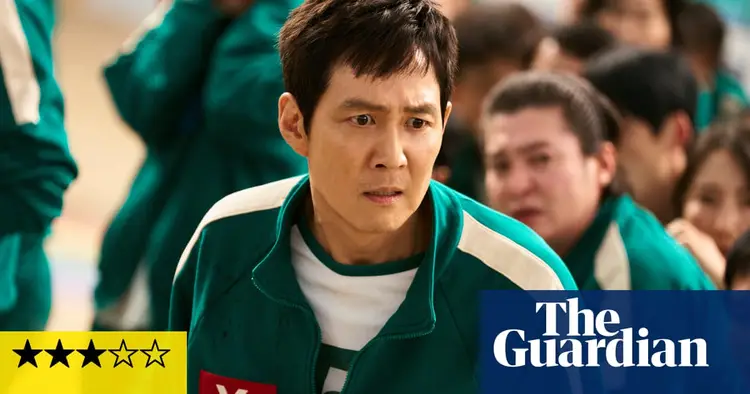Squid Game season two review – TV that will make you uncomfortably bloodthirsty indeed

One of Hollywood's recurring issues is the tendency to stretch a single story into two parts just to increase profits (looking at you, Dune and Wicked). However, Squid Game was always meant to be a self-contained season. The story follows Seong Gi-hun (played by Lee Jung-jae), a gambling addict who becomes Player 456—a desperate man trying to settle his debts by participating in a brutal underground competition where players fight to the death. He manages to survive each of the deadly games designed like twisted playground activities. When it first debuted, it was chilling and exhilarating, and its sharp social commentary on capitalism and class in South Korea was both clever and biting. Audiences around the globe quickly embraced it.
Becoming one of Netflix’s biggest and most lucrative shows put it in a challenging position creatively. Naturally, it was given the green light for a second and third season. However, even before those were released, its sharp satire faced a trial with the introduction of Squid Game: The Challenge, a reality game show inspired by the series. While it turned out to be more engaging than expected, its focus on winning diminished the original's message about the deep-rooted injustices of a predatory economic system.
That being said, this is a bit of a distraction, and the millions of fans are eager to see if "Squid Game" can recapture its original charm, despite the fact that its return appears unnecessary from a storytelling perspective. In the first three of the seven new episodes, the show struggles to find its direction. Three years have passed since Gi-hun took home the prize money, and now he’s determined to exact revenge on the wealthy masterminds behind the deadly games. He’s pursuing elusive targets, using some of his large fortune (or “blood money”) to assemble a group of mercenaries. He teams up with former detective Hwang Jun-ho, who is still on a quest to find his brother, as they search for the Salesman—a man in a suit who invites strangers to play ddakji before luring them into the games. As time goes by, they continue to hit dead ends.
The initial episodes seem to stretch things out, and given that it's Squid Game, everything feels a bit mundane. There are some action-packed sequences, including car wrecks and shootouts. The humor and satire have taken a backseat to a storyline focused on revenge. While it's enjoyable, it creates a rather unsettling thirst for violence, as you find yourself hoping everyone will return to the competition, albeit with casualties. Since the final episode feels more like a mid-point in the overall narrative, especially with a concluding season set for next year, this slow pacing seems excessive.
Things are looking up. When Gi-hun returns as Player 456, as teased in the trailer, it's a refreshing jolt of energy. The story starts to revisit familiar elements while making enough adjustments to keep things interesting. It delves deeper into the backgrounds of the masked soldiers who uphold the rules. With a fresh group of players, viewers have new characters to either cheer for or disdain. The themes of costly healthcare and the connection between wealth and health are highlighted, making it very relevant to today’s issues. A mother-son duo is introduced, which, as shown in both Squid Game: The Challenge and the latest season of The Traitors, provides a compelling narrative. However, some characters come off as overly exaggerated villains, like a rapper named Thanos, who is one of the most annoying figures to hit television in a while.
One of the main themes in Squid Game is the nature of humanity. Are we inherently good and generous, or are we driven by greed and selfishness? The Salesman highlights this idea early on when he brings two bags of groceries to a park filled with homeless people and those facing hard times. He presents them with a choice: bread for certain nourishment or a scratch card for a chance at cash. Most opt for the gamble, despite the uncertainty involved. Gi-hun, on the other hand, thinks he understands what the games are about. However, convincing the others of the true meaning of participating in a game where the odds are against you is a different challenge altogether.
Despite its ups and downs, especially as it gears up for the main action, there’s a significant twist that hits the mark. However, it’s uncertain whether this twist is different enough from the first season. Just when you believe you have it figured out, it shifts direction, raising the stakes and gaining momentum. It’s unfortunate that it takes quite a while to reach that point. The third season definitely has some ground to cover.











































